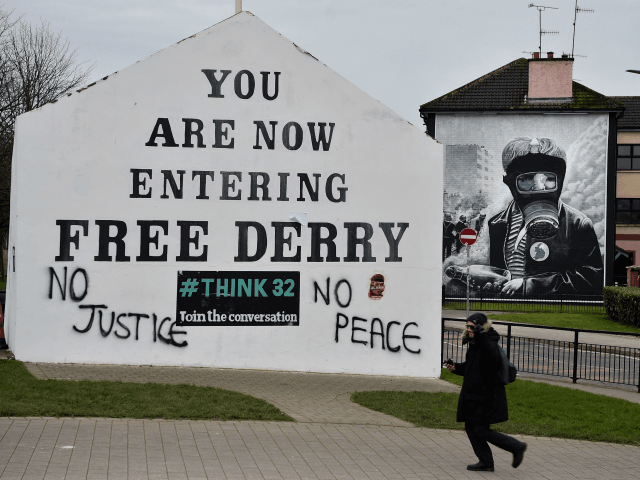British military veterans have reacted with anger after prosecutors said they will charge ‘Soldier F’ with the murder of two men and the attempted murders of four others during the ‘Bloody Sunday’ protest in Londonderry, Northern Ireland, in 1972.
Soldier F., a grandfather in his seventies, is accused of murdering James Wray and William McKinney, two of the 14 protesters who died 47 years ago. He is also accused of the attempted murder of Joseph Friel, Michael Quinn, Joe Mahon, and Patrick O’Donnell.
Retired Army officer Colonel Richard Kemp CBE wrote in The Sun that the “hounding” of soldiers who served in Northern Ireland is “politically motivated.”
“It forms part of a Sinn Fein/IRA campaign to rewrite history, painting their terrorists as freedom fighters and our troops as oppressors,” Col. Kemp said.
“This action is doubly despicable when you consider that so many IRA terrorists were given early release, Royal Pardons and letters of comfort.
“There has been no such treatment for British soldiers, who, yet again, the government is treating as mere pawns in its game of appeasement of extremists,” he added.
Colonel Tim Collins OBE, a retired Northern Irish Army officer, accused the British state of “colluding with the Republican propaganda machine,” writing in the Daily Mail that it was “repugnant” that “While genuine terrorists walk free, those who served their country and sought to defend the public find themselves in court.”
A fellow paratrooper who served with the accused in Northern Ireland, Sergeant O., told The Telegraph he feared Soldier F. is being treated as a “scapegoat” and is unlikely to get a fair trial, which sources claim could last up to five years, in Northern Ireland.
Founder of the Justice for Northern Ireland Veterans Group Grenadier Guard Alan Barry told The Irish Times that he believed no British soldier should be charged for the deaths that occurred on Bloody Sunday, saying, “Under the terms of the Good Friday Agreement, veterans are being left open to prosecution while terrorists have been cleansed of their past crimes.
“It’s all about appeasement: appeasing the IRA, appeasing Sinn Féin, and if that means throwing one or two veterans under a bus then that’s what they’ll do.”
Following the 1998 Good Friday Agreement, the Tony Blair government agreed to the early release of certain Irish Republican Army (IRA) terrorists serving prison sentences, while some 200 on the run were sent “comfort letters” telling them they were no longer wanted by police, which critics said effectively offered them amnesty.
The UK’s defence secretary Gavin Williamson confirmed the government would fund all costs for legal and welfare support for Soldier F. and said that he would seek a ten-year statute of limitation on such charges against servicemen and veterans.
“We are indebted to those soldiers who served with courage and distinction to bring peace to Northern Ireland,” Mr Williamson said.
“Our serving and former personnel cannot live in constant fear of prosecution,” he added.
On Sunday, January 30th, 1972, some 10,000 marchers rallied in Londonderry in protest at Operation Demetrius, the arrest and internment of those suspected of involvement with the IRA, which was waging a deadly terrorist campaign against the UK to force a ‘united’ republican Ireland at the time.
The protest turned violent, resulting in the deaths of 14 marchers and the wounding of 14 others. In the aftermath, the UK had officially backed the Army’s interpretation of events before in 1998, ahead of the signing of the Good Friday Agreement, then-Prime Minister Blair established an inquiry into Bloody Sunday, which in 2010 ruled the protesters had not posed a threat.
In the years following, the Police Service of Northern Ireland (PSNI) conducted murder inquiries, handing the file to the Public Prosecutions Service to determine whether charges against any of the 17 paratroopers should be brought, resulting this week in the charges against Soldier F.

COMMENTS
Please let us know if you're having issues with commenting.